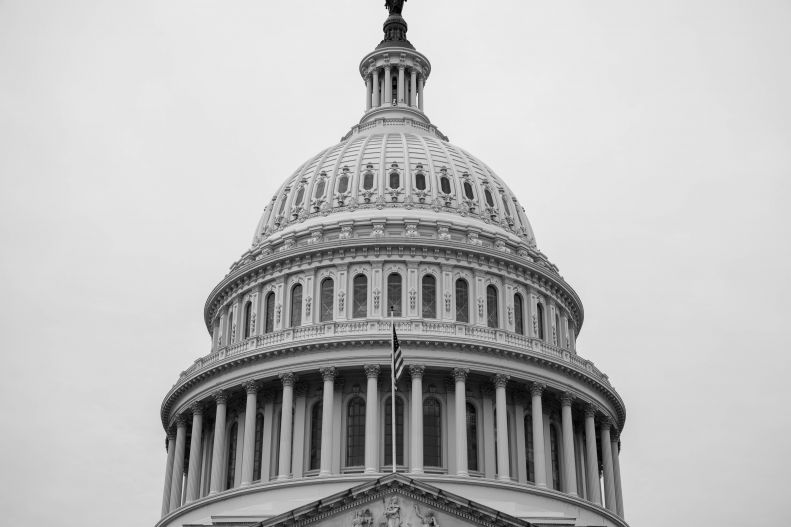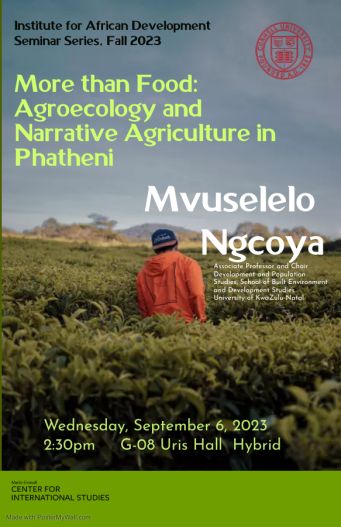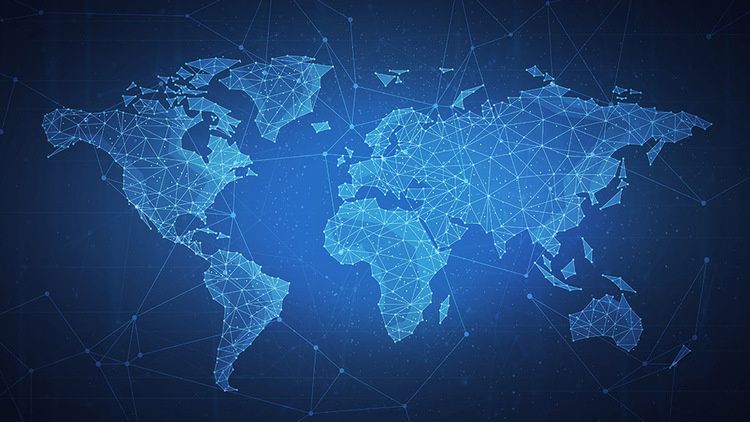Development, Law, and Economics
Biden Can, and Should, Ignore the GOP’s Debt Suicide Attempt

Robert Hockett, CRADLE
Robert Hockett, professor of law and finance, discusses the national debt in this opinion essay.
Additional Information
IAD Distinguished Africanist Scholar

Dr. Kouame Kouadio, Researcher, Head of Eco Epidemiology unit, Department of Environmental Health, Pasteur Institute (Abidjan, Côte d’Ivoire)
Kouamé Kouadio is an Ivorian senior researcher and the Head of the eco epidemiology unit within the Department of Environmental Health at Pasteur Institute (Abidjan, Côte d’Ivoire).
IAD DAS Lecture
Hospital Waste Management in the Context of Pandemics: case of the Covid 19 (Wednesday, September 20, @2:30pm G-08 Uris Hall)
The Challenge of Neglected Tropical Diseases in Africa: From the Diagnostic State to the Prospect of their Eradication (Thursday, September 21, @4:30-6:00pm Africana Center and Research Center)
Dr. Kouadio is a medical doctor and received a PhD in Medical Science, Option Preventive and Environmental Medicine from the University of Ryukyus, Okinawa, Japan. Dr. Kouadio also obtained a Diploma in Vaccinology from Pasteur Institute, Paris (France), then another diploma in Epidemiology, Statistics and Computer Science from Université Libre de Bruxelles, Belgium. Dr. Kouadio is an air pollution and health specialist and the Head of the Master of Research in Social Science Applied to Health (MRSS) at the University Institute of Abidjan, IUA, Abidjan, Côte d'Ivoire. Since 2014, he has been the Health Focal Point Côte d'Ivoire of the DACCIWA Project (Dynamics Aerosol Chemistry Cloud Interactions in West Africa).
Additional Information
Institute for African Development Special Topic Seminar

More than Food: Agroecology and Narrative Agriculture in Phatheni
G-08 Uris Hall
The seminar series for fall 2023 explores the future of African land, agriculture and food, digging into the contestations, conflicting and converging visions from a wide range of perspectives.
How might land be used, valued and lived in, across cities, rural communities, forests, deserts and grasslands on the continent in the future? Who is proposing different visions of land futures in Africa, what are the histories, politics, socio-cultural, environmental and economic implications of these potential visions? In one of the regions with the most youthful populations, how are young people considering possible futures? What are ways that land, agriculture and food systems could be resilient, healthy, ecological, thriving and just? Can there be a decolonial agriculture and food future in Africa that celebrates Indigenous and local foodways?
Additional Information
Biden Resorts to a Classic D.C. Punt on the Debt Ceiling. Progressives Aren’t Pleased.

Robert Hockett, CRADLE
“It feels like a threshold was crossed,” says Robert Hockett, professor of law and public finance. “Some Democrats are finally waking up to that.”
Additional Information
Weaponizing Geography

September 7, 2023
12:00 pm
An Environmental and Technological History of Cold War Mega-Projects in Latin America
Weaponizing Geography demonstrates the consequences of unbuilt mega-projects. Sebastian Diaz Angel will discuss the untold story of how a series of high modernist Cold War projects came into being and what their proponents hoped to achieve, as well as the successes, failures, and consequences of their actions. It examines the so-called “South American Great Lakes System” (SAGLS), a geographical and environmental engineering project (1964-1973) proposed by the Hudson Institute of New York, a think tank related to the U.S. Department of Defense. With the support of influential Latin American elite members, engineers, and war strategists, this think tank sought to transform the major rivers of the continent into a series of massive interlocked, channelized, and navigable artificial reservoirs. Much like the North American Great Lakes, these waterways would provide (in theory) inexpensive riverine transportation, inexhaustible sources of hydropower, and a landscape facilitating large-scale agroindustry, mining, and counterinsurgency operations in allegedly “unexploited and unexplored” tropical regions.
Please join us for this virtual conversation. Register here.
About the speaker
Before starting his Ph.D. at Cornell’s History Department, Dr. Sebastian Diaz Angel had an M.A. in Geography, a B.A. in History, and a B.A. in Political Sciences. He worked as the Digital Map Curator at the National Library of Colombia, lectured at Externado University, and led Razón Cartográfica, an academic network promoting research on the history of geography and cartography in Colombia and Latin America. Sebastian specializes in maps studies and has a profound interest in environmental history, science and technology studies, geopolitics, public history, and the digital humanities.
Host
Judith Reppy Institute for Peace and Conflict Studies
Additional Information
Program
Einaudi Center for International Studies
Reppy Institute for Peace and Conflict Studies
Latin American and Caribbean Studies
Ariel Rubinstein: Economics with No Prices and No Games

September 8, 2023
11:30 am
Goldwin Smith Hall, G76
CRADLE Law & Economics Lecture
Ariel Rubinstein is a professor of economics at Tel Aviv University and New York University. He received his B.Sc. in Mathematics, Economics, and Statistics from the Hebrew University in 1974 and his Ph.D. in Economics from the Hebrew University in 1979. His research work focuses on economic theory, bounded rationality, game theory, experimental economics, and choice theory.
Welcome and introductory remarks will be given by Kaushik Basu, Professor of Economics and Carl Marks Professor of International Studies, Rachel Beatty Riedl, director of the Mario Einaudi Center for International Studies and John S. Knight Professor of International Studies, and Robert C. Hockett, Edward Cornell Professor of Law.
Additional Information
Program
Einaudi Center for International Studies
IAD Fall Symposium: Africa and China: Trade, Investment, and Development

November 3-4, 2023
China/Africa relations have a long history, with modern China/Africa relations having originated during the 1955 Bandung conference where Asian and African leaders met in Indonesia to strategize ways to confront colonialism and the cold war. In the 1960s and 1970s China/Africa relationships revolved mainly around ideological solidarity with African socialist countries such as Tanzania, Zambia, Zimbabwe and Mozambique. Newly independent African states and the liberation wars taking place in the Southern African region were supported by China as were infrastructural development in a handful of countries, notably Tanzania and Zambia.The overall objective of the conference is to engage in comprehensive discussion of Chinese investments in Africa.
Additional Information
Social Security, Healthcare, Veterans Likely Casualties of US Debt Default

Robert Hockett, CRADLE
Robert Hockett, professor of law and finance, discusses the possibility of President Biden selling government assets to continue paying pensions and healthcare costs.
Additional Information
The Sun the Banking World Revolves Around

Robert Hockett, CRADLE
Robert Hockett, professor of law and finance, assesses the recent banking crises.
Additional Information
How Washington Allowed Bank CEOs to Pocket Huge Bonuses Amid Failure

Robert Hockett, CRADLE
“There’s a public ritual that lawmakers feel a need to engage in to yell about ‘holding the fat cats responsible,’” says Robert Hockett, professor of law. “But it never gets at the actual problem.”
